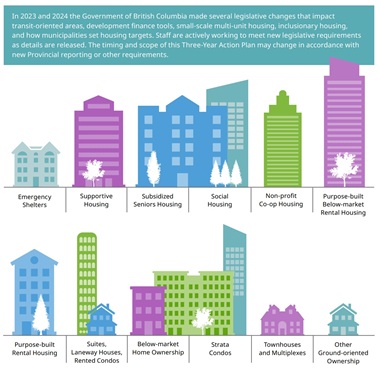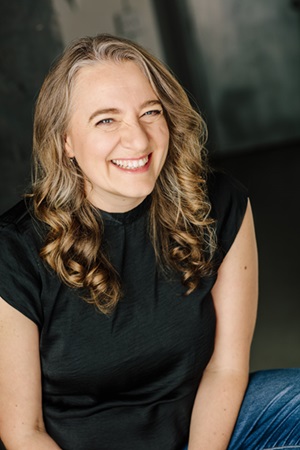
We can pray that Housing Vancouver: a Three-Year Action Plan (2024 – 2026) will afford many vulnerable people a safe home, where they can sleep well.
Every day in hospitals around Vancouver (and beyond) medical teams gather for rounds, discussing the patients in their care. Each team member – doctors, nurses, social workers, pharmacists, occupational therapists and dietitians – shares their input on how patients are doing. Together they work out a plan for the individual while they are in hospital and after discharge.
At one of our local hospitals, I work on a medical detox unit for individuals with substance use disorders. Our team includes peers, individuals with lived experience of addictions, who support patients as they navigate the start of an often-overwhelming sobriety journey.
Our team also includes Indigenous liaison workers who focus on Indigenous patients, providing traditional snacks, blankets, sharing circles and other culturally meaningful acts of care.
We recently had a patient with no fixed address who slept through the first 48 hours on the unit. When her name came up during rounds, no one had yet conducted an assessment. Someone commented, “now that she’s safe, she’s sleeping.”
That phrase has stayed with me. To be homeless is hard in ways I can never fully understand, but the absence of safety – of the peace that allows sleep to come – is a reality I had not truly considered.
We do not entirely know why we sleep a third of our lives, nor why sleep is easy for some and harder for others, or why it will not come to us some nights. When we sleep, our bodies do a nightly tune-up – consolidating memories, resetting the immune system and restoring balance to the delicate chemistry that sustains us.
A typical night of restful sleep consists of four to five 90-minute cycles, transitioning from shallow sleep to deeper stages, culminating in Rapid Eye Movement (REM) sleep. During REM, we experience most of our dreaming, while our bodies are temporarily paralyzed, preventing us from physically reacting to our dreams. Despite this paralysis, our brains remain aware of our environment, and even though we shift positions more than 30 times throughout the night, we rarely fall out of bed.
When we sleep well, we wake up feeling clear-headed, with energy for the day. When we experience sleep deprivation, we struggle through the day, often eating more and feeling less motivation to work, be active or do other activities of daily living. Chronic sleep deprivation can erode the body’s defenses, leading to mental strain, heart disease, a weakened immune system and a nervous system more sensitive to pain.
The patient mentioned above struggled with substance use and had experienced an assault several days before she was admitted into our care. She came in significantly undernourished and dehydrated. All of that would be devastating. Add on not feeling safe enough to relax and sleep for days, and no one would cope.
Since that day, I have looked at all my patients – people I pass on the streets as I walk around Vancouver, and others who I know are struggling – wondering if they feel safe enough to sleep.
I want everyone to have what I have – a place I love coming home to, where my possessions are secure, and where I can host. At the same time, I feel a tension when I see how much building is happening around this city, wondering how we can fit more people into already crowded roads, transit, parks, hospitals and social services.
Vancouver leadership has a strategy in place to work towards a city with adequate livable and affordable housing, particularly for those who need it most. Housing Vancouver: a Three-Year Action Plan (2024 – 2026), lists more than 50 actions for provincial and federal government, community and the private sector, including replacing some of our infamous Single Room Occupancy Hotels (SROs) with self-contained social housing and ensuring there is the infrastructure and amenities for our growing population.
Most of us are not developers or builders, but we can still lean toward more generous responses. We can start with gratitude if we have a safe, quiet room with a warm, comfortable bed.
We can respond with curiosity and compassion when we see someone lashing out, wondering if they are hungry, sleep deprived or have other unmet needs. We can increase our concern and care about housing, domestic violence, refugees and food insecurity.
If we do not work directly in these fields, we can offer practical, financial, and relational support to those who do the heavy front-lines work.

Karen Giesbrecht
I cannot remember a night when I did not feel safe enough to drift into sleep, but far too many of our neighbours in Vancouver do face this daily. It is an avoidable reality, though.
Collectively, we have enough resources, enough bedrooms, enough compassion and enough wisdom. We must work together so we can say about all our neighbours, “Now that they’re safe, they’re sleeping.”
Karen Giesbrecht is a registered dietitian with a particular interest in mental health, strong communities, good stories and real food. She wove all these together in Happy Colon, Happy Soul: An Exploration of Why and How we Share Food (Wipf & Stock, 2019).
At home in Vancouver, Karen takes great delight in sharing good meals with her family, friends and those in her community who know hunger.
She has posted this comment on this site as a member of The Bell: Diverse Christian Voices in Vancouver. Go here to see earlier comments in the series.

I thank Karen Giesbrecht for this sensitive story about things that probably most don’t know too much about or have thought of. I particularly value her thoughts on sleep and the difficulties some people have – just not feeling safe enough or secure enough to sleep well.
Oh, if it were only possible for those people who don’t feel safe – whether physically or emotionally – to be able to sleep like a baby. Secure and knowing we’re taken care of. If only all could sleep knowing they have a God who is there, looking after them. If we, as Jesus followers could only have the compassion He showed in His life for people who suffered.